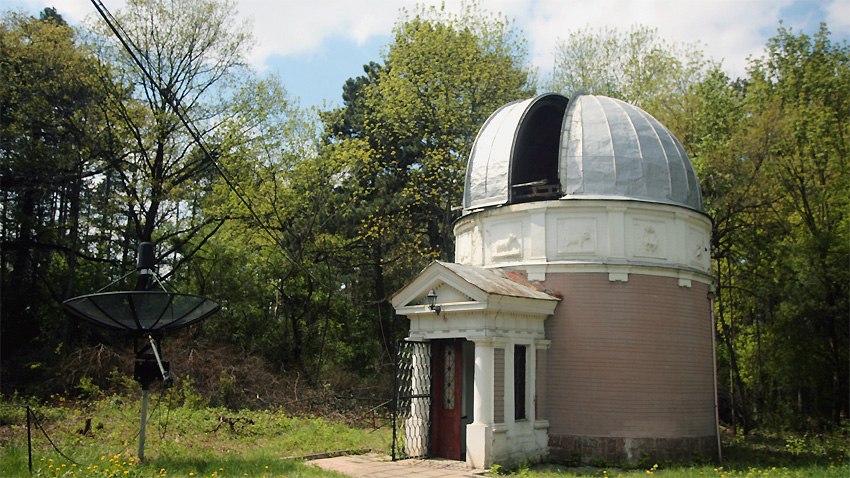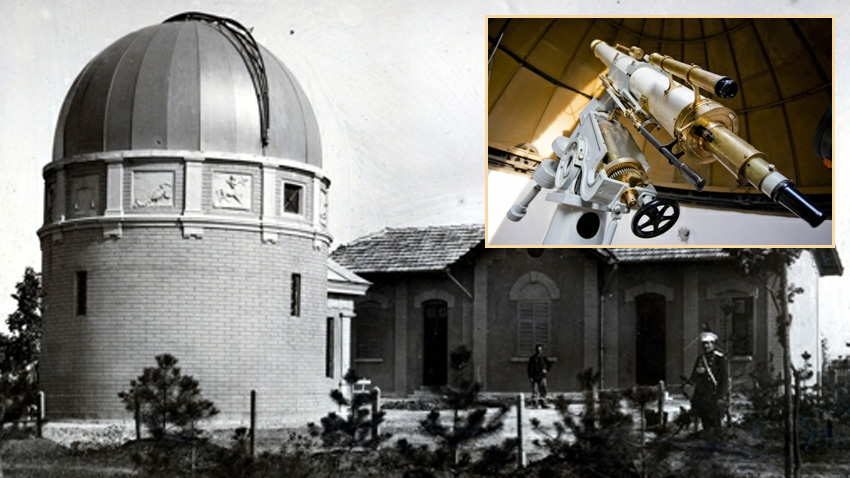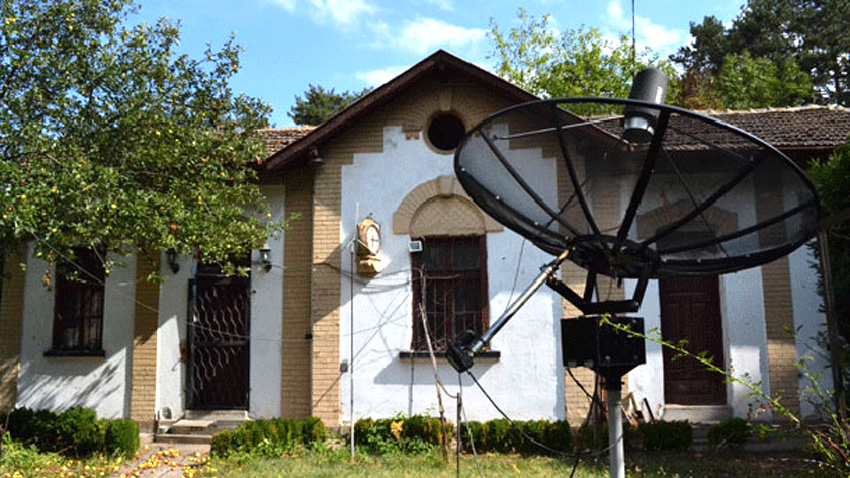Many Sofia citizens opt for the Borisov Garden for their leisure time walks. Most of them know the location of the oldest astronomical observatory in this country, situated amidst its century-old trees. The facility has never stopped working for all the 120 years of its existence. It has five buildings, and two of them are the oldest ones belonging to the Sofia University St. Kliment Ohridski. The oldest telescope in the country can be found inside one of them, called The Big Dome. Visitors might view the device and even watch the stars through it.
“Besides science and education, we also try to popularize astronomy,” says Dr. Evgeni Ovcharov, head of the Astronomy Dept. with Sofia University. “We’ve had those groups of students or citizens here, but as of October 20 those visits will be regular – on Fridays, Saturdays and Sundays in the mornings and in the evenings. The department organizes events such as An Astronomy Evening, Open Doors Day, we also participate into the European Night of Scientists and all those are for free.”

Associate Prof. Ovcharov and his colleagues have been repairing the observatory for some 18 months now, with the support of many people and institutions. Students from the math high school, students from the Physics Dept. and Sofia Municipality have all been adding to these efforts. The yard is now to be restored, the way it looked before and some of the buildings are still to see their restoration and repair.
No professional star observations have been possible for years due to air pollution in Sofia, but a new 35 cm modern telescope will be available as of October 20, alongside the old one – all for the purposes of demonstration. Relatively close objects will be viewed through it, such as the Moon and the planets nearby, but also more remote star groupings will be accessible too.

Evgeni Ovcharov talks more on the events, eagerly expected by both amateur and professional astronomers:
“Meteor streams or the so-called falling stars are one of the most interesting phenomena. These are tiny elements that enter the atmosphere at great speed. The strongest stream is in mid-December, but the Perseid Meteor Shower on August 12 – 13 is the most popular one. The December star shower would perhaps be comparable to it. Whoever has the chance might take a look through binocular lens low above the western horizon – Saturn might be spotted. Then perhaps the most thrilling event is forthcoming in July 2018 – a total lunar eclipse and the conditions on Bulgarian territory will be perfect for observation.”
Popularization of astronomy is essential, according to the scientists of the department which has given some 300 astronomers to the country since the end of the 19th c.
“We have a workshop which is over 100 years old,” the associate professor says. “We have slightly changed the format over the past couple of years, so that the lectures’ language could be more accessible, accentuating on the successes of Bulgarian astronomy. The event takes place each Thursday at 7.30 pm and once per month the observatory accommodates us for free. We have then over 200 spectators, which means great interest shown towards science.”

Last autumn the department unveiled a new master program, accessible for bachelors from all specialties and named Astronomy and Popularization of Astronomy. Those who enroll don’t have to become professional astronomers by all means, but they have the chance to get acquainted with this science and they might become promoters across different planetariums and observatories.
English version: Zhivko Stanchev
Bringing youthful energy, colour and cheer to the Bulgarian National Radio studio, students from the Bulgarian Sunday School Dr Petar Beron arrived from Larnaca. The group from Cyprus — 16 pupils aged between 14 and 19 — is currently on a week-long..
At the outset of the war between Russia and Ukraine, the Bessarabian Bulgarians across all lands marked their national day with prayers for peace. Nearly four years on, burdened with even greater sorrow, they commemorate that special day scattered..
Switzerland is one of the smaller Central European countries on the Old Continent. It consists of twenty-six cantons with a population of about 9 million people, according to the latest Eurostat data from 2024. 41% of those residing in the country are..
Everyone knows that as soon as temperatures start going down it is pickle-making season. Making preserves at home is a time-honoured and widespread..
Minister of the Environment and Water Manol Genov has granted two centuries-old trees – each of which approximately 200 years old – protected status,..

+359 2 9336 661
